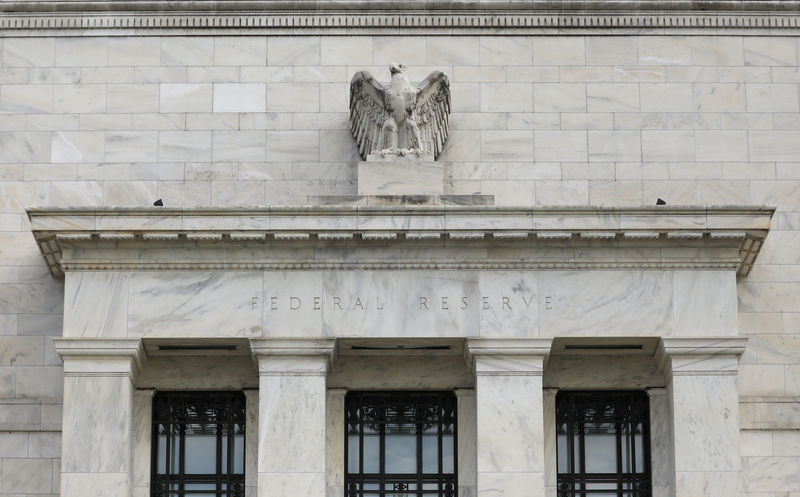(Bloomberg) -- The damage of the Covid-19 recession will be doubled by the Federal Reserve’s inability to cut interest rates further, unless it employs massive additional asset purchases, one of the central bank’s top researchers said in a new paper.
Bond purchases equal to 30% of U.S. economic output, or about $6.5 trillion, are required to offset the impact of the Fed’s benchmark rate already being nearly zero, wrote Michael Kiley, a senior Fed economist and deputy director of the bank’s financial stability division. The Fed has so far purchased bonds -- through so-called open-market operations and emergency lending facilities -- equal to about $3 trillion since March. That implies another $3.5 trillion is needed, in Kiley’s view, to make up for the monetary policy handicap of zero rates.
The paper may bolster the case among policy makers for increasing the Fed’s bond purchases in coming months. The Fed currently purchases about $120 billion a month combined in Treasuries and mortgage-backed bonds.
When panic struck financial markets in March, Fed officials lowered the target for their benchmark rate to a range of zero to 0.25%, where they say it will likely remain for years. They have consistently ruled out pushing rates into negative territory.
So far one policy maker, Cleveland Fed President Loretta Mester, has said she might support shifting asset purchases more to longer-dated bonds. She did not favor increasing total purchases at this time and nor have any of her colleagues publicly advocated for such a move, while declining to rule anything out.
Kiley noted his findings are based on models developed prior to the Covid-19 outbreak that “may fail to capture how pandemic shocks affect investment and other decisions.” In other words, economists don’t really know how or whether the pandemic might disrupt the impact they expect from bond purchases on real economic activity.
The paper follows research published last month showing economists employed by central banks were more likely to report significant effects of using bond purchases than independent economists who’ve studied the policy tool.
©2020 Bloomberg L.P.

